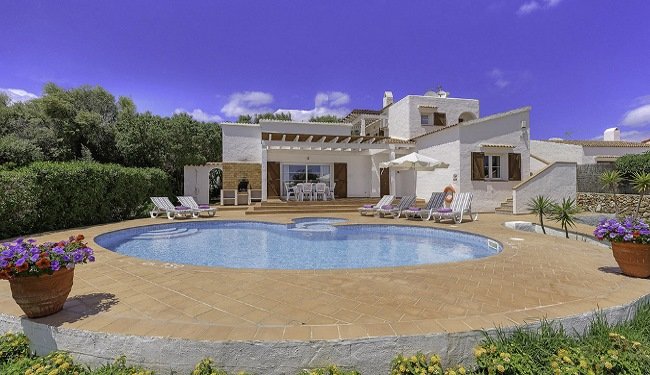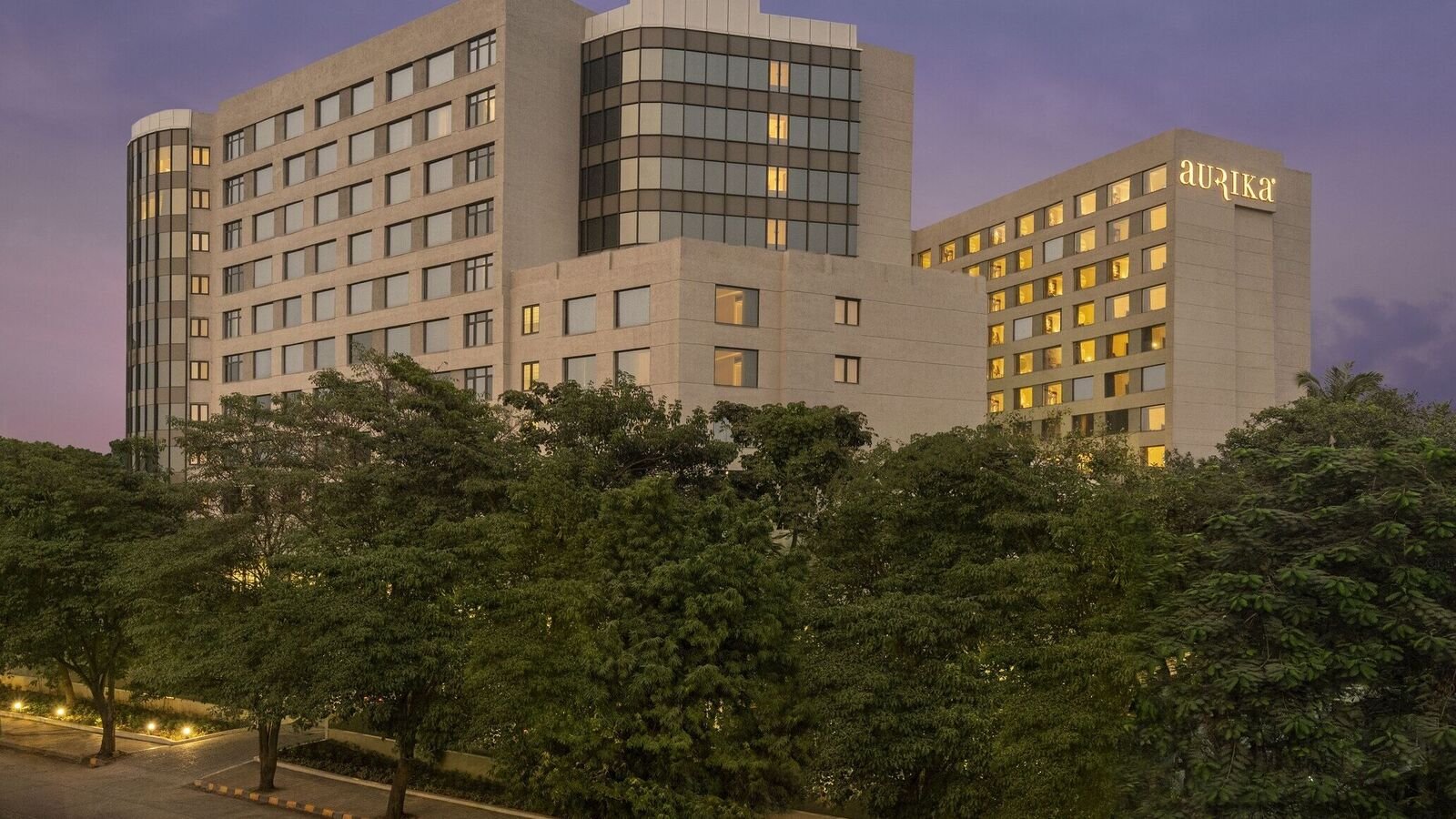Hotels & Accommodations
Luxury hotels in London become affordable as competition heats up and demand cools

With more luxury openings driving up competition and economic uncertainty tamping down demand, London’s hotels are recalibrating their prices. The result is the first real deflation in luxury hospitality since the post-Covid “revenge travel” boom. Take the five-star Raffles at the OWO, which made headlines with its then-unprecedented £1,100 starting price when it opened in 2023. Search for a basic room now, and you might find one available for £880—20% less than its original going rate.
A similar story is unfolding across other top hotels in London. At the Peninsula London, rooms can be found for around £900, down from the £1,300 the hotel was charging when it opened two years ago. One night at the all-suite Emory Hotel in Knightsbridge can be booked for £936, while last year’s debut prices was £1,600.
Also read | 6 foreign countries Indian passport holders can travel to and all you need is ₹50,000
And it’s not just the relative newcomers that are adjusting their prices—a room at the Dorchester can be booked for £750, when the starting room rates were above £1,000 last year. Data shared by Fora Travel, a “host agency” for thousands of travel advisers, shows average nightly rates at five-star London properties are anywhere from 20% to 50% lower than the same period in 2024.
“The drop in prices is largely driven by heightened competition,” says Fora adviser Aleksandra Coric. To wit, London’s parade of ultraluxury openings is showing no signs of slowing down.
The long-anticipated, 144-room Chancery Rosewood at the old US Embassy in Mayfair is now taking reservations—it will open in September—and later this year, the 109-room Six Senses will follow suit, serving as the anchor for the regeneration of the Bayswater neighborhood just north of Hyde Park. Then 2026 will see Auberge Hotels make its London debut: It’s transforming a 102-room grand Palladian mansion with connections to the royal family. A third Mandarin Oriental property and a Waldorf Astoria are on the way too. It all adds up to more than a thousand new top-tier rooms in the next two years in what’s already a crowded market.
Coric says the market correction is largely about supply and demand, with global economic uncertainty making it difficult for the travel industry to sustain the record-breaking figures of the last few years. The ramifications of all that are most pronounced at the highest end of the market—likely as aspirational travelers abandon their splashiest plans in favor of more moderate budgets.
Also read | Visa fraud: British High Commission extends campaign to raise awareness in Punjab and Haryana
Tom Cahalan, co-founder of luxury travel agency Dorsia Travel, posits that the sky-high rates in 2024 were also something of a failed experiment, with hoteliers trying their luck to see just how much consumers were willing to shell out. “Even our ultra-high-net-worth clients still want value for money,” he says, and the prevailing consumer sentiment has been that hotels charging upwards of $1,000 aren’t always delivering an experience that’s worth the added cost.
Cahalan says it’s ultimately easier for hotels in seasonal destinations, like the Amalfi Coast or the south of France, to maintain sky-high room rates, simply because their limited availability effectively creates a scarcity effect. By contrast, he explains, London is a year-round destination.
Some of the newcomers who are vying to be the best of the best are still betting they can command blockbuster prices. The new, all-suite Chancery Rosewood has starting prices of £1,280 a night in September, for instance. But the new Six Senses will likely price lower, with executives from the wellness-focused brand saying that the London property is aiming to charge rates of around £700.
Cahalan sees a silver lining to the price wars: He argues that all the competition has helped London leap-frog Paris to become the world’s best city for five-star hotels. And if you factor in the competition across the channel, Britain’s bastions of luxury look like relative bargains. After all, the best hotels in Paris—be it Le Bristol or the Ritz or Rosewood’s Hotel de Crillon—are bucking the logic that’s prevailing in the Big Smoke. The prices there? Easily $2,200 a night.
Hotels & Accommodations
Study: Hiring people with disabilities can help hotels

The company’s global pipeline exceeded 93,000 rooms, including nearly 77,000 in the U.S. Its global system size grew 2.1 percent, including 3 percent growth in the upscale, extended-stay and midscale segments, Choice said in a statement.
“Choice Hotels delivered another quarter of record financial performance despite a softer domestic RevPAR environment, underscoring the successful execution and diversification of our growth strategy,” said Patrick Pacious, president and CEO. “We are especially pleased with our strong international performance, where we have achieved significant growth and accelerated global expansion through a recent strategic acquisition, the signing of key partnerships, and entry into new markets. With more diversified growth avenues, enhanced product quality and value proposition driving stronger customer engagement and a leading position in the cycle-resilient extended-stay segment, we remain well-positioned to deliver long-term returns for all our stakeholders.”
Domestic RevPAR declined 2.9 percent, reflecting macroeconomic conditions and a difficult comparison with 2024 due to the timing of Easter and eclipse-related travel, the statement said. Excluding those effects, RevPAR fell approximately 1.6 percent. Meanwhile, the domestic extended-stay portfolio outperformed the broader lodging industry by 40 basis points in RevPAR, while the economy transient portfolio exceeded its chain scale by 320 basis points.
Adjusted EBITDA rose 2 percent to $165 million, or $167 million excluding a $2 million operating guarantee related to the Radisson Hotels Americas acquisition. Adjusted diluted EPS increased 4 percent to $1.92, the statement said.
Expansion and development
The domestic extended-stay portfolio grew 10.5 percent year over year, with a pipeline of nearly 43,000 rooms as of June 30, Choice said. The combined domestic upscale, extended-stay and midscale portfolio grew 2.3 percent. WoodSpring Suites expanded 9.7 percent to nearly 33,000 rooms and ranked first in guest satisfaction among economy extended-stay brands in the J.D. Power 2025 study. The domestic economy transient pipeline increased 8 percent to more than 1,700 rooms.
Choice acquired the remaining 50 percent interest in Choice Hotels Canada for approximately $112 million in July, funded through cash and credit. The deal expanded its Canadian brand portfolio from eight to 22 and added 327 properties and more than 26,000 rooms. The business is expected to contribute approximately $18 million in EBITDA in 2025.
International activity included a renewed master franchise agreement with Atlantica Hospitality International in Brazil for more than 10,000 rooms; a direct franchise deal with Zenitude Hotel-Residences in France, which nearly tripled room count and two agreements with SSAW Hotels & Resorts in China. These include a 9,500-room distribution deal for 2025 and a master franchise agreement projected to add 10,000 rooms over five years.
Global net rooms for upscale brands increased 14.7 percent year over year, the statement said. The pipeline for these brands rose 7 percent since March 31 to nearly 29,000 rooms.
2025 outlook
Choice revised its RevPAR outlook to reflect more moderate domestic expectations due to macroeconomic conditions, the statement said. The adjusted EBITDA forecast includes a $6 million contribution from the Choice Hotels Canada acquisition for the remainder of 2025. It also reflects the $2 million Radisson-related operating guarantee payment incurred in the second quarter.
Net income guidance was lowered to a range of $261 million to $276 million, down from $275 million to $290 million. Adjusted net income remains at $324 million to $339 million.
Domestic RevPAR growth was revised to between negative 3 percent and flat, compared to the earlier range of negative 1 percent to positive 1 percent. The global net system rooms growth projection remains at approximately 1 percent.
In May, Choice reported 2.3 percent year-over-year growth in domestic RevPAR for the first quarter.
Hotels & Accommodations
Vacation rentals outpacing hotels across US

The US vacation rental market is pulling ahead of the traditional hotel sector.
While much of the travel sector contended with shorter booking windows and uneven demand in Q2, vacation rentals have proved resilient, a new report suggests.
According to the Q2 2025 Vacation Rental Market Index by Key Data, STRs outperformed hotels in every region across the US, with an average RevPAR (revenue per available rental) advantage of 9 percentage points1.
Key Data is a major provider of real-time market intelligence and benchmarking for the global short-term rental industry.
The data covers 13 million listings, and signals the STR sector is evolving.
Still, its performance isn’t evenly distributed. While many operators are thriving, others are feeling the strain.
Key Data’s analysis reveals a widening divide between high-performing and under-pressure regions, and between operators actively adapting to change and those falling behind.
Several regions posted impressive year-over-year growth in RevPAR, including:
Mid-Atlantic: +11% RevPAR YoY, driven by a +10% increase in occupancy
New England: +10% RevPAR, bolstered by seasonal demand and premium pricing
Rocky Mountains: +9% RevPAR, sustained by consistent traveler interest
Hawaiian Islands: +6% RevPAR, maintaining strong rate integrity in a competitive climate
In contrast, the Southwest saw the steepest drop, with RevPAR falling -4% YoY and new supply hindering rate growth.
The report suggests that even the strongest markets aren’t immune to emerging pressures.
Forward occupancy for September is down 11% year over year, it finds, and booking windows have shortened across key summer months.
While RevPAR remains strong in several regions, the landscape is becoming more fragmented.
Melanie Brown, VP of Data Insights at Key Data, said: “Performance is no longer just about location or seasonality. We’re seeing the STR sector evolve. Operators who succeed in this next phase won’t be the biggest, they’ll be the most responsive.”
The ability to track booking behavior, adjust pricing dynamically, and execute quickly is now what separates growth from stagnation.”
Related News Stories: GHA Discovery – TravelMole
Hotels & Accommodations
Lemon Tree’s Keswani to transition from dual role at top in succession planning

Lemon Tree Hotels Ltd’s chairman and managing director Patanjali G. Keswani will become executive chairman of both LTH and its subsidiary Fleur Hotels as part of a leadership change effective 1 October.
Lemon Tree informed the BSE on Friday that the management change was part of its long-term succession plan aimed at strengthening leadership.
The company announced the appointment of Neelendra Singh, former managing director of Adidas India, as the managing director of Lemon Tree Hotels, effective 1 October.
Saurabh Shatdal, managing director at real estate consultancy Cushman & Wakefield, will take over as managing director and chief executive of Fleur Hotels, which is expected to be listed on the public markets by the end of next year.
Chief financial officer Kapil Sharma will join Lemon Tree’s board as executive director while continuing in his role as the hotel operator’s finance head.
Lemon Tree Hotels, founded by Keswani, opened its first hotel in 2004 and has a portfolio of more than 230 hotels. It also has 110 hotels in the pipeline both in India and internationally.
The hotel group, which owns, leases, operates, and franchises hotels across segments, has seven brands including Aurika Hotels and Resorts, Lemon Tree Premier, Lemon Tree Hotels, Fleur Hotels, Red Fox Hotels, and the Keys brand.
Keswani, 66, speaking with Mint in May, said Lemon Tree Hotels expected strong revenue growth this fiscal year, driven by a rebound in business travel, higher room rates, and expansion across hotel segments.
Lemon Tree was prioritising the public market listing of Fleur Hotels by December 2026 to go debt-free, he said, adding that post the listing the subsidiary is expected to generate more than ₹700 crore in annual earnings before interest, taxes, depreciation, and amortization.
The company also aims to capture the under-penetrated market of sub-40-room properties in smaller cities. This is part of a broader strategy to tap India’s growing demand for branded accommodation, which is projected to rise from 200,000 rooms currently to 300,000 by 2029-30.
Despite a brief dip in demand during the April-June first quarter due to the Pahalgam terror attack and a resurgence of covid, Keswani said he expected mid-teen revenue growth for FY26 supported by rising domestic travel and Lemon Tree’s growing footprint.
A seasonal boost
Prashant Biyani, vice president for institutional equity research at Elara Capital, said the management changes at Lemon Tree bring greater clarity for the hotel company beyond Keswani.
“Having separate managing directors for each entity will help ensure healthy growth for both,” he said, adding that investors would be keen to see a clear growth strategy for Fleur Hotels ahead of its market listing in 12-15 months.
Despite softer demand for the hotel sector in the first quarter, Biyani expects occupancy to grow 1-1.5 percentage points from a year earlier in the ongoing second quarter.
Hotels are expected to charge 10-12% more for rooms on average, which combined with the increased occupancy is expected to boost the industry’s overall revenue per available hotel room by 12-14% in FY26, according to Elara Capital.
In the June quarter, Lemon Tree’s revenue from operations surged to ₹315.77 crore from ₹268.01 crore in the same year-earlier quarter. Net profit jumped to ₹48.10 crore from ₹20.11 crore a year ago.
Travel to northern cities such as Chandigarh, Amritsar, Srinagar, and Jodhpur was impacted by rising border tensions in early May, while the Air India plane crash in June triggered widespread flight cancellations.
This led to lower hotel bookings in cities such as Goa, Jaipur, Mumbai, Delhi, and Bengaluru that are heavily dependent on air connectivity.
Despite these setbacks, Elara remains optimistic about the hotel industry’s prospects in the second quarter owing to seasonal demand, long weekends, corporate events in Mumbai, and Kerala’s Onam festival.
Among listed hotel players, Lemon Tree Hotels will be a tactical stock pick for the second quarter, Biyani said.
Lemon Tree Hotels ended Friday’s trading on NSE 0.76% lower at ₹142.99 per share, while the Nifty 50 fell 0.95%.
-

 Brand Stories3 weeks ago
Brand Stories3 weeks agoBloom Hotels: A Modern Vision of Hospitality Redefining Travel
-

 Brand Stories2 weeks ago
Brand Stories2 weeks agoCheQin.ai sets a new standard for hotel booking with its AI capabilities: empowering travellers to bargain, choose the best, and book with clarity.
-

 Destinations & Things To Do3 weeks ago
Destinations & Things To Do3 weeks agoUntouched Destinations: Stunning Hidden Gems You Must Visit
-

 Destinations & Things To Do2 weeks ago
Destinations & Things To Do2 weeks agoThis Hidden Beach in India Glows at Night-But Only in One Secret Season
-

 AI in Travel3 weeks ago
AI in Travel3 weeks agoAI Travel Revolution: Must-Have Guide to the Best Experience
-

 Brand Stories1 month ago
Brand Stories1 month agoVoice AI Startup ElevenLabs Plans to Add Hubs Around the World
-

 Brand Stories4 weeks ago
Brand Stories4 weeks agoHow Elon Musk’s rogue Grok chatbot became a cautionary AI tale
-

 Brand Stories2 weeks ago
Brand Stories2 weeks agoContactless Hospitality: Why Remote Management Technology Is Key to Seamless Guest Experiences
-

 Asia Travel Pulse1 month ago
Asia Travel Pulse1 month agoLooking For Adventure In Asia? Here Are 7 Epic Destinations You Need To Experience At Least Once – Zee News
-

 AI in Travel1 month ago
AI in Travel1 month ago‘Will AI take my job?’ A trip to a Beijing fortune-telling bar to see what lies ahead | China

You must be logged in to post a comment Login